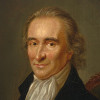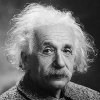“ There can be no society without exchange, no exchange without a common standard of measurement, no common standard of measurement without equality. ”
Jean-Jacques Rousseau, Emile, or On Education (1762). copy citation
| Author | Jean-Jacques Rousseau |
|---|---|
| Source | Emile, or On Education |
| Topic | equality society |
| Date | 1762 |
| Language | English |
| Reference | |
| Note | Translated by Barbara Foxley |
| Weblink | http://www.gutenberg.org/cache/epub/5427/pg5427-images.html |
Context
“All we have now to do is to substitute general ideas for particular, and to enlarge these ideas by means of numerous examples, so as to make the child understand the game of business itself, brought home to him by means of particular instances of natural history with regard to the special products of each country, by particular instances of the arts and sciences which concern navigation and the difficulties of transport, greater or less in proportion to the distance between places, the position of land, seas, rivers, etc.
There can be no society without exchange, no exchange without a common standard of measurement, no common standard of measurement without equality. Hence the first law of every society is some conventional equality either in men or things.
Conventional equality between men, a very different thing from natural equality, leads to the necessity for positive law, i.e., government and kings.”
source



